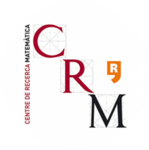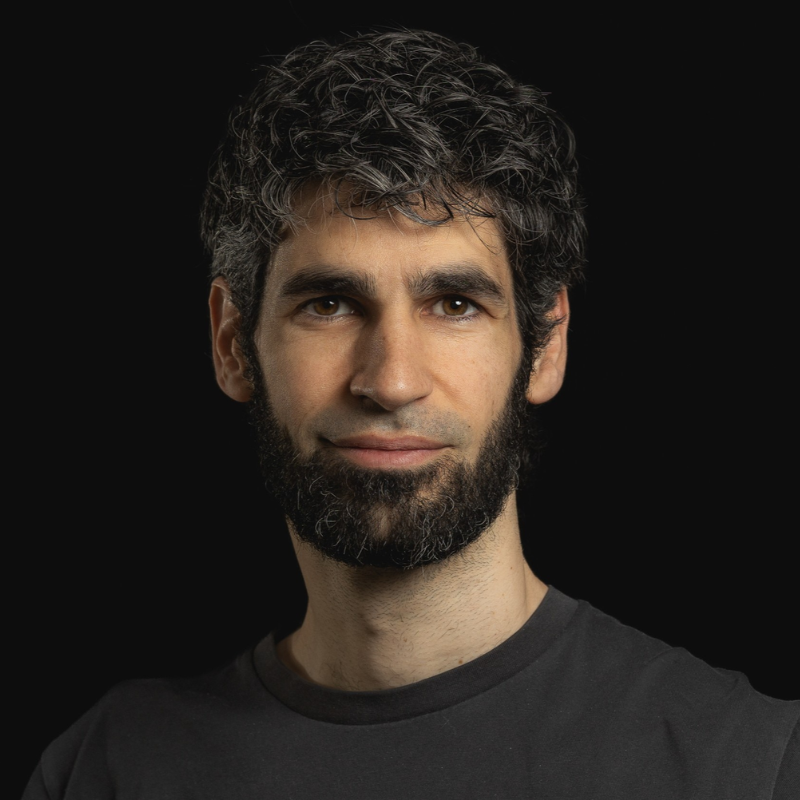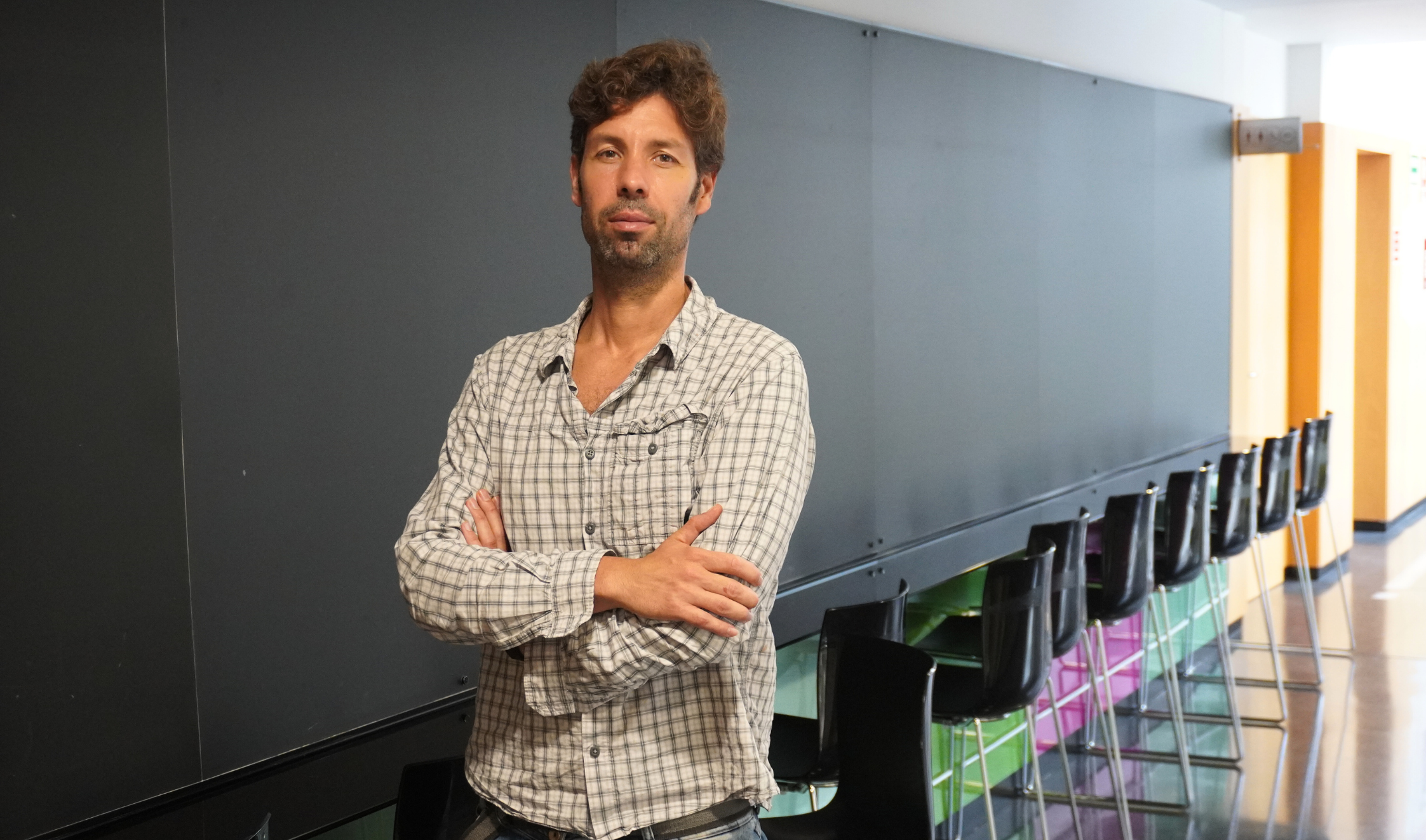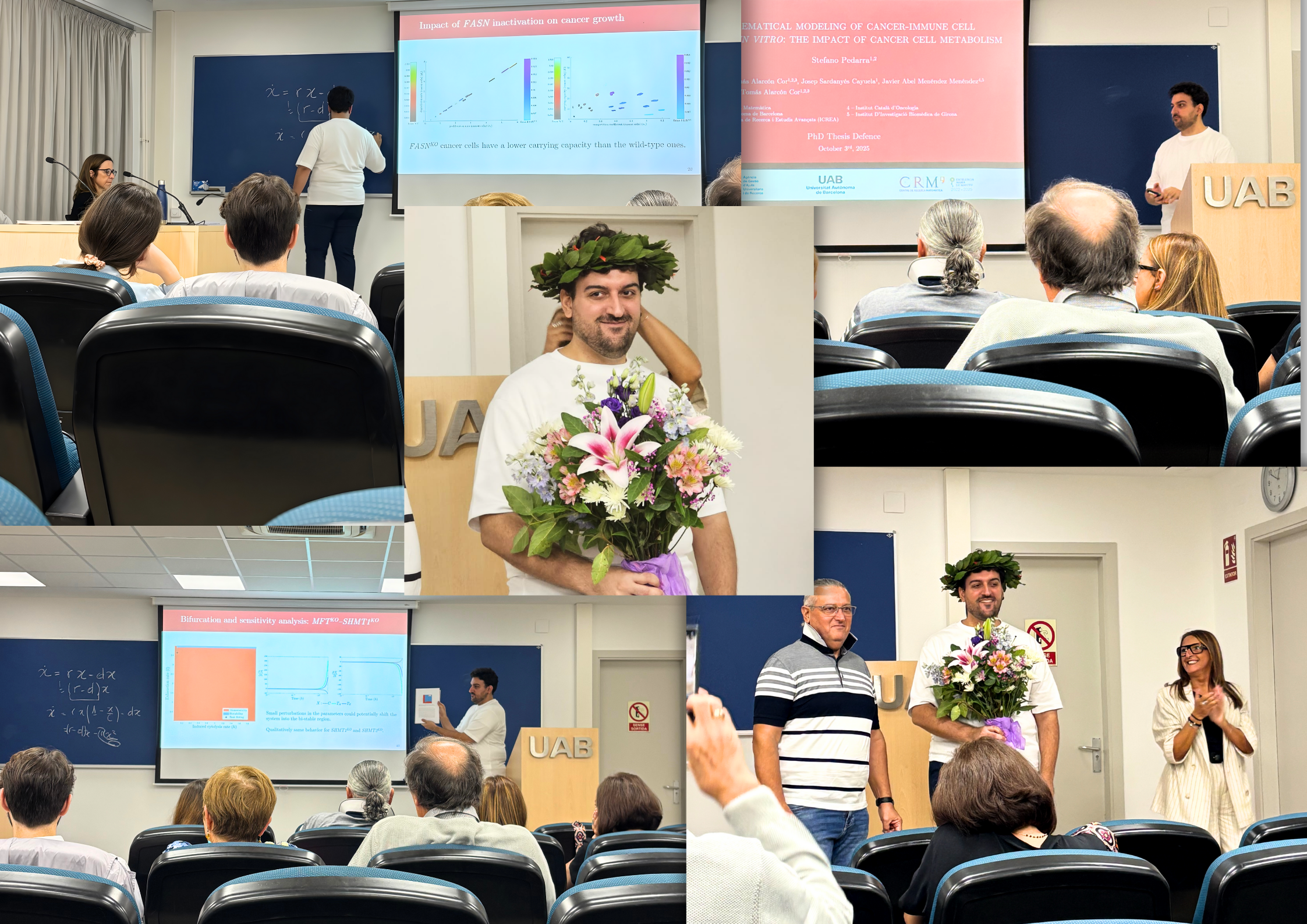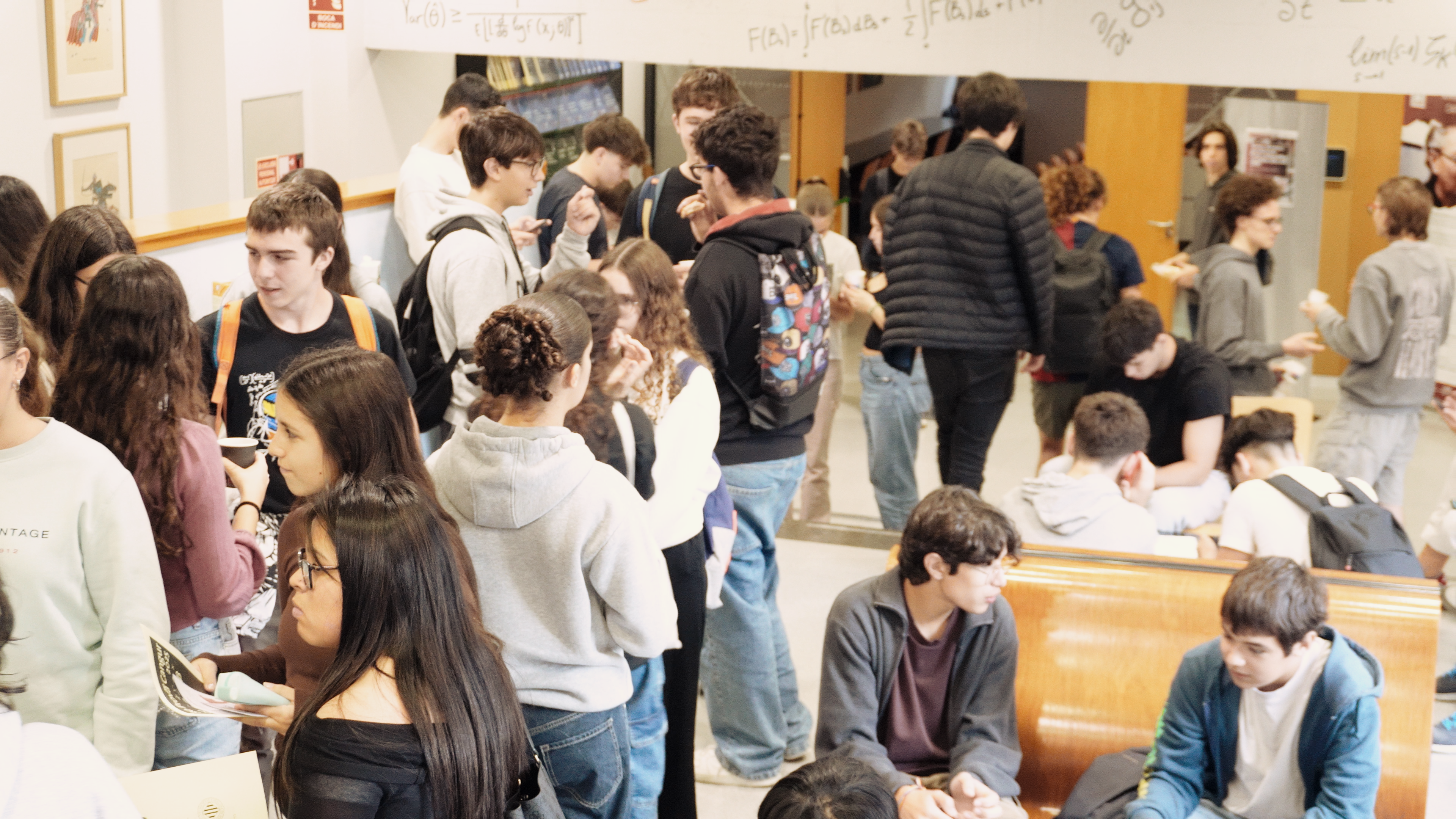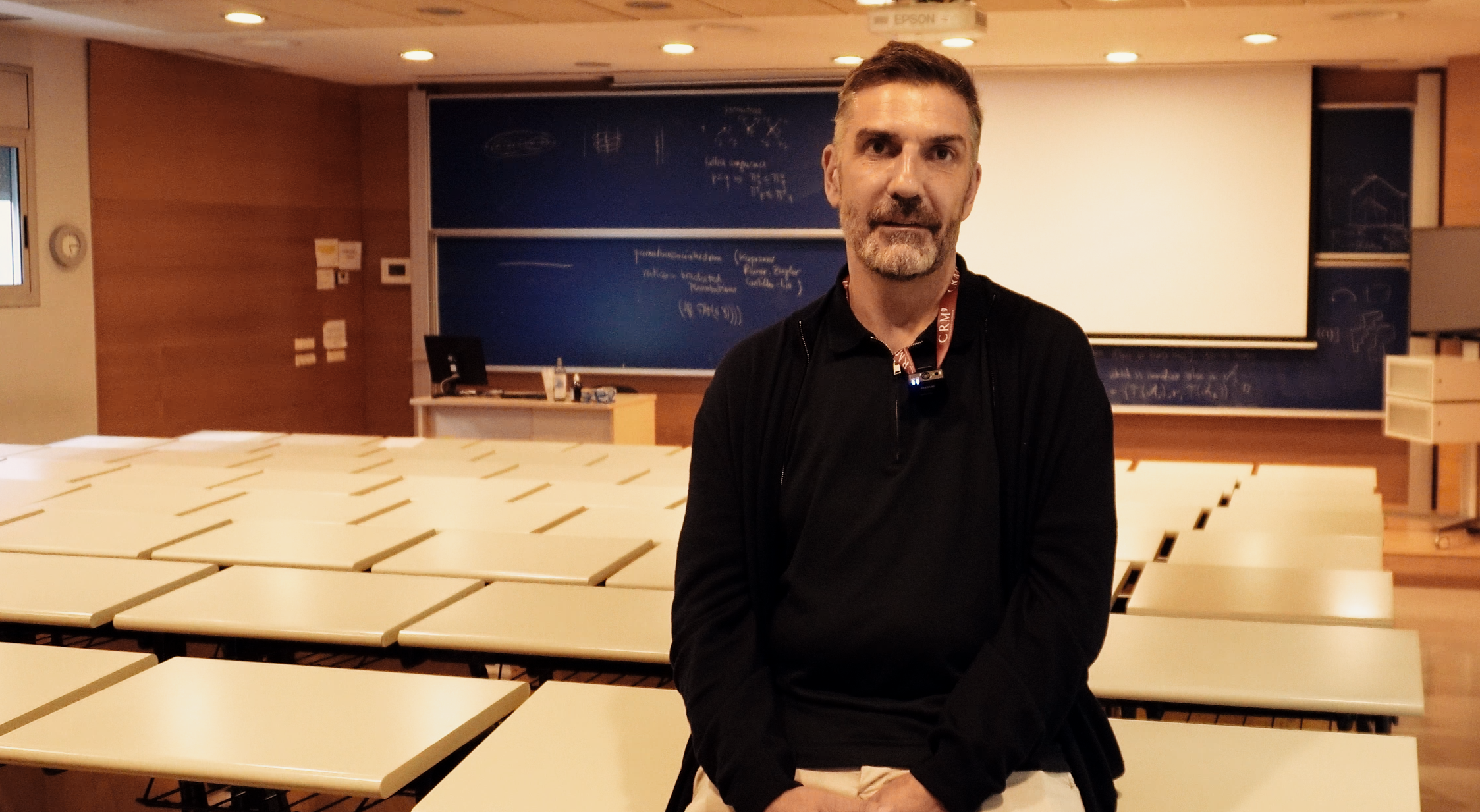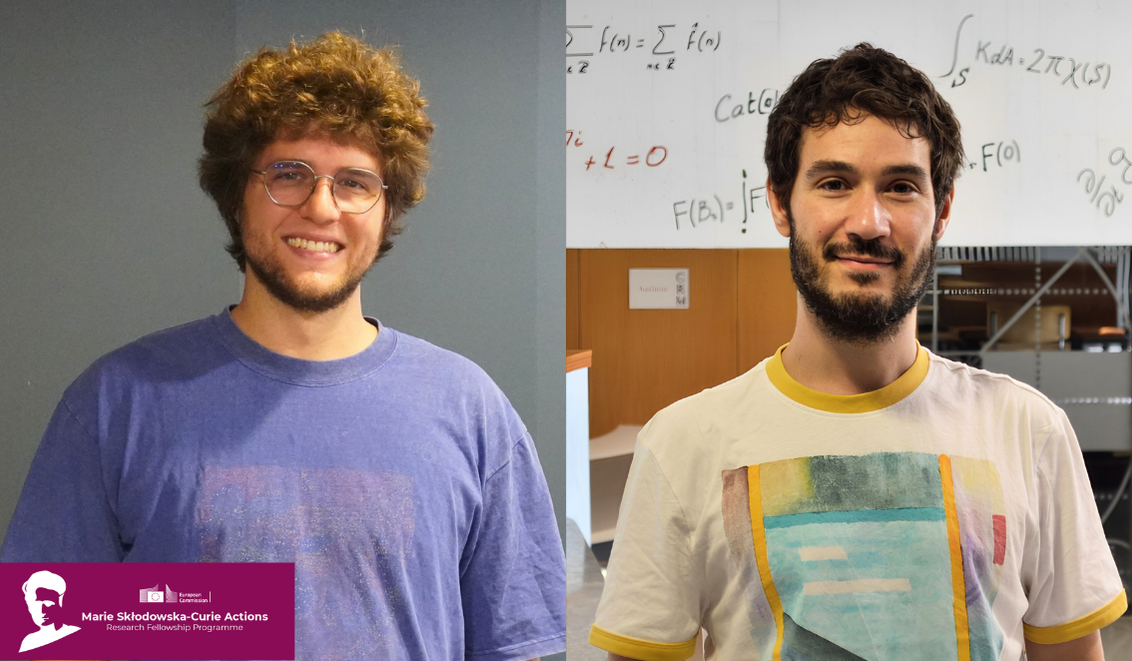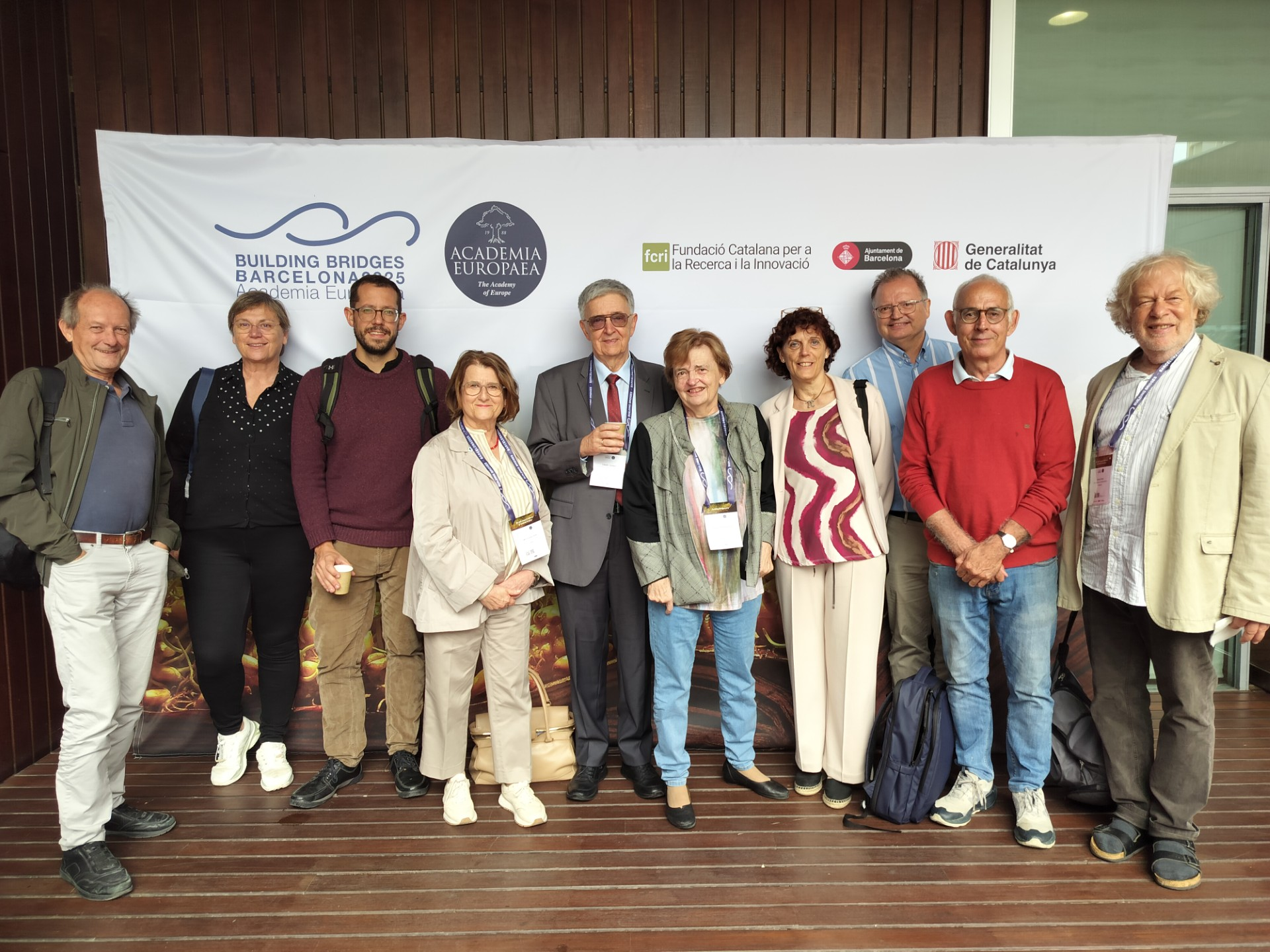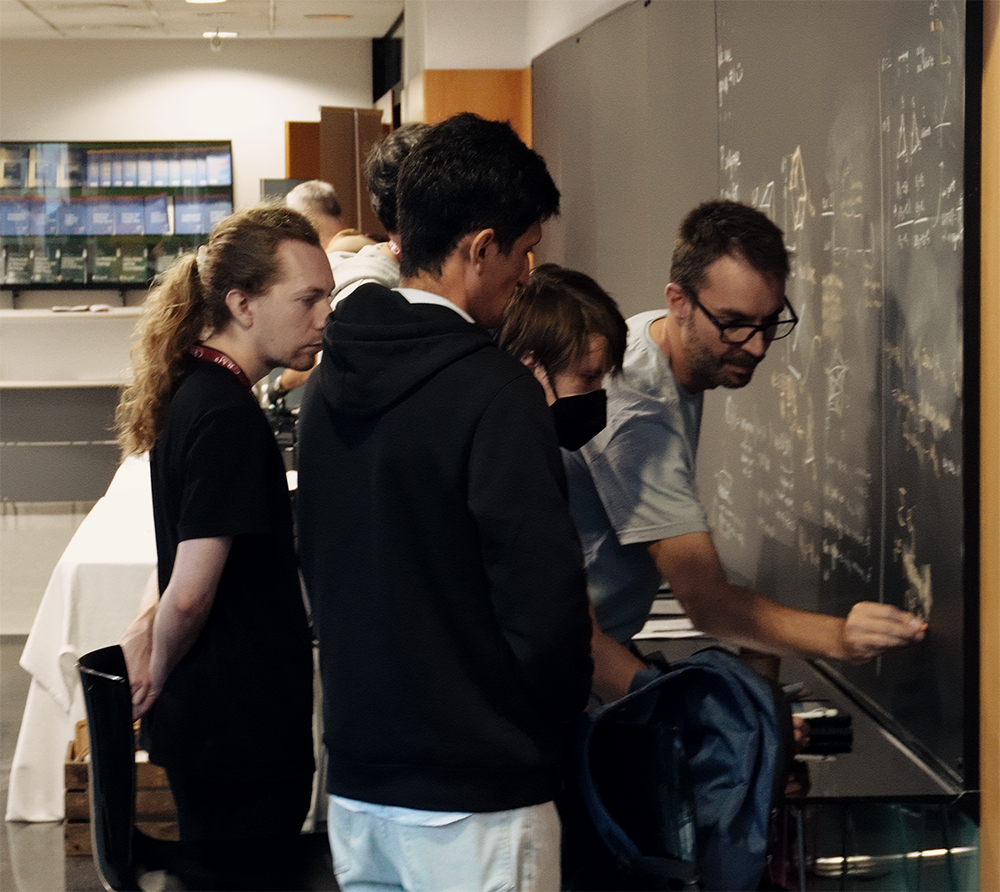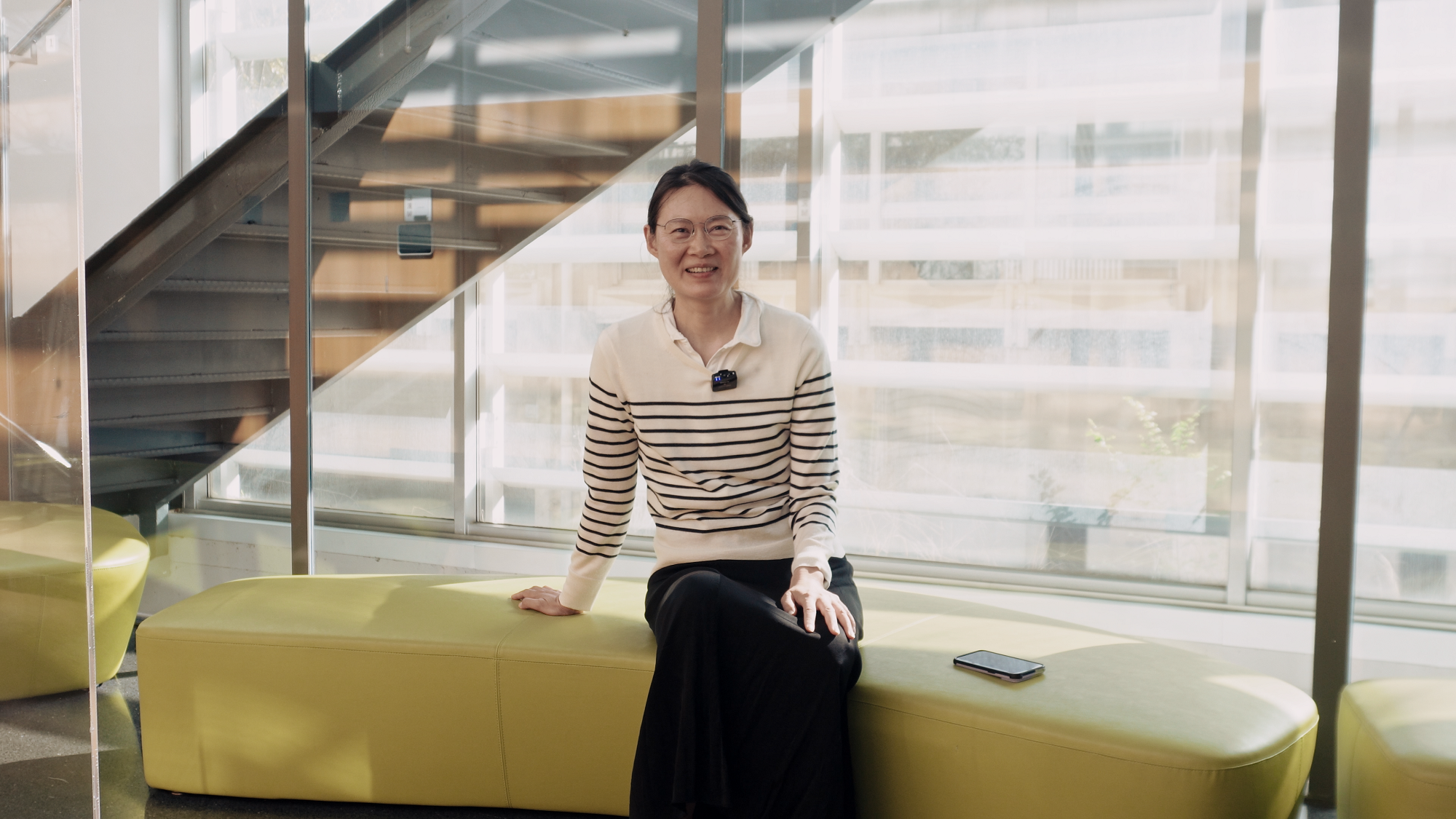
The Centre de Recerca Matemàtica (CRM) is proud to announce the appointment of Professor Chenchang Zhu (Georg-August-Universität Göttingen) as the first María de Maeztu Chair of Excellence, a distinction that recognises world-leading women mathematicians whose work aligns with the strategic priorities of CRM.
The CRM–MdM Chair of Excellence, funded through the María de Maeztu Unit of Excellence (2022–2025), is a newly created initiative aimed at hosting 1–2 senior women mathematicians or computer scientists annually for short stays of up to four months. The program seeks to foster collaboration with inspiring role models in mathematics and to build enduring scientific connections with international leaders.
Professor Zhu’s appointment formally began on April 9, 2025, with an inaugural colloquium titled Higher Structures in Symplectic Geometry: A Journey from Galileo to Weinstein. In this lecture, she traced a conceptual arc from Galileo’s early insight into the brachistochrone problem to modern symplectic geometry and its deep interplay with quantum theory. The talk introduced the language of higher and derived structures, inspired by Grothendieck’s derived geometry, as tools to tackle singularities in geometric reduction and explore new frontiers in mathematical physics.
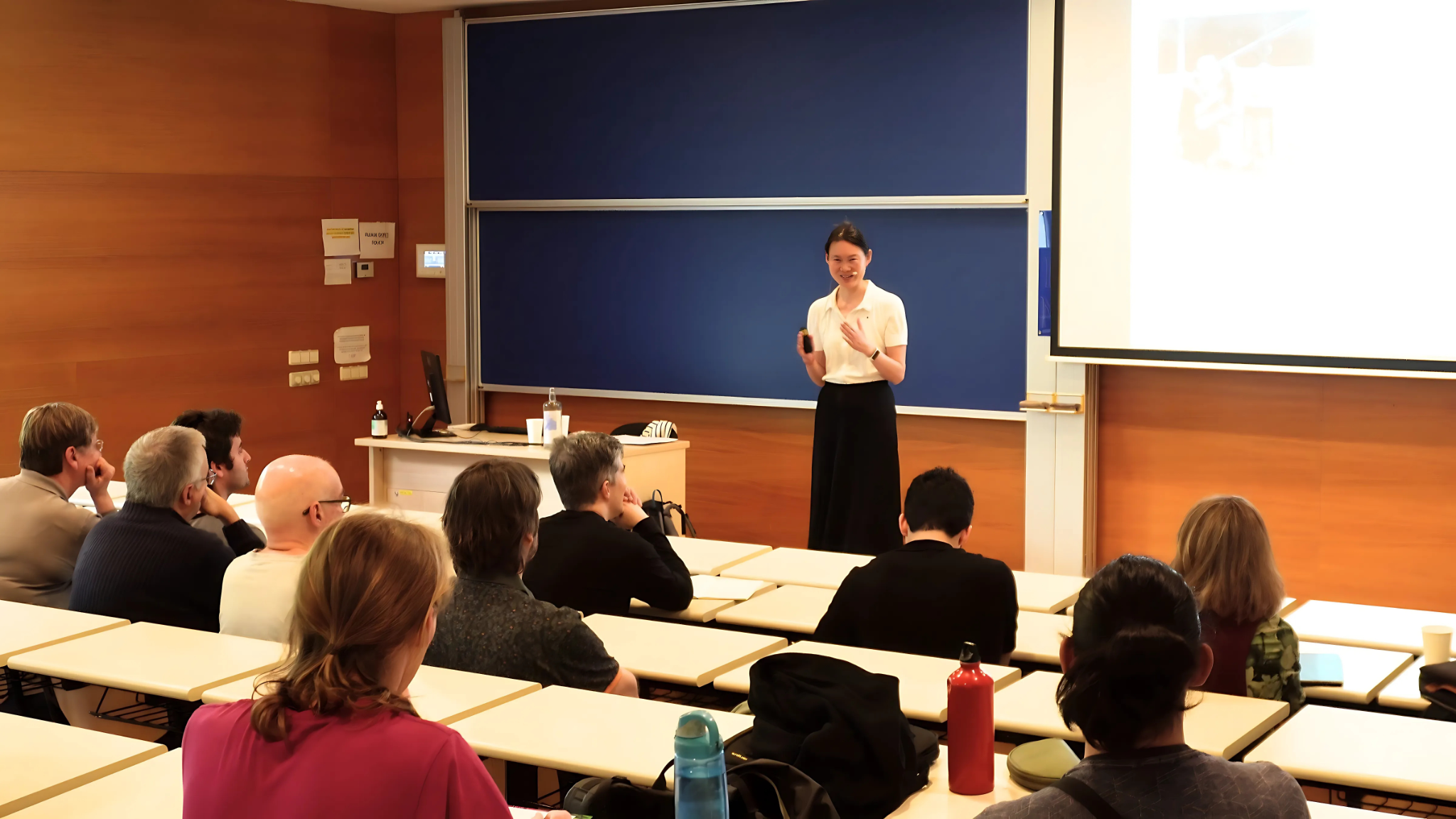
Professor Chenchang Zhu delivers the inaugural CRM–María de Maeztu Chair of Excellence Colloquium, held on April 9, 2025, at the Centre de Recerca Matemàtica. Her lecture, “Higher Structures in Symplectic Geometry,” marked the beginning of her stay as the first holder of this appointment.
Drawing from the philosophical perspective of her advisor Alan Weinstein, who once said “everything is Lagrangian”, Zhu presented a vision of differential geometry that incorporates modern homotopical tools, from Lie groupoids and NQ-manifolds to shifted symplectic structures. These ideas, she argued, may be essential for understanding the mathematical underpinnings of topological quantum field theories and sigma models, owing to the fundamental 3+1-dimensional nature of our universe.
While this is her first formal collaboration with CRM researchers, Zhu is no stranger to the CRM. She previously played a role in the Intensive Research Programme Poisson 2022, where she chaired the scientific committee of the advanced school alongside Eva Miranda, who served as local chair. “The collaboration was amazing,” Zhu recalls. “Eva self-generated so many things, it turned the event into an absolute fantasy. Through that, I began discovering the charming, concrete work of many Spanish colleagues in higher geometry.”
Her research interests, spanning higher and derived differential geometry, Poisson and symplectic structures, and their connections to mathematical physics, are the result of a deeply personal and intellectually curious journey. She credits a pivotal moment to a conversation with Alan Weinstein, who drew her attention to the topological groupoid constructed by Crainic and Fernandes for integrating Lie algebroids. “Alan suspected there should be some differential structure behind it,” Zhu recounts. “I had just attended Barbara Fantechi’s course on algebraic stacks in Park City, and it suddenly struck me that maybe this structure should be a stack, though adapted to differential geometry. I didn’t understand stacks yet, but the spark was there.” A subsequent encounter with Kai Behrend at the ICM 2002 in Beijing proved transformative: “That’s when things clicked. It was the first time I really saw how these higher structures could solve actual problems.”
Zhu’s career has been marked by a global academic trajectory, with formative periods in China, the United States, Switzerland, France, and Germany. This multicultural experience has shaped not only her mathematics but also her collaborative ethos. “It helps you become more open and understanding,” she says. “Different systems have different strengths, and you learn to navigate and appreciate those differences.”
She also brings a thoughtful perspective on gender equity in mathematics. “Things have improved a lot,” she notes. “When I was starting, France was already better, it had around 20% women in mathematics. Now, our institute in Göttingen has reached parity.” But she also emphasises the importance of integrating family support into institutional policies. As a single mother, she has faced logistical hurdles when travelling for work: “You still have to justify travelling with your child, or explain why you need an extra day. These should be obvious considerations.”
Programs like the CRM–MdM Chair of Excellence, she believes, play a role in fostering equity. “They’re more than symbolic. They send a message of recognition and trust. They give visibility and encouragement to the kind of work that often happens quietly; foundational, long-term, and connecting different communities.”
Reflecting on what this recognition means at this stage in her career, Zhu speaks with warmth and clarity: “It’s a moment of deep encouragement. It affirms the work I care about: the bridges between ideas, the invisible efforts, and the interdisciplinary visions. It gives me the confidence to keep pushing boundaries and reminds me that staying true to one’s path, even when it’s unconventional, matters. It feels like an invitation to dream a bit bolder.”
Her inaugural colloquium is available to watch on the CRM YouTube channel, offering a window into the vibrant intellectual landscape she continues to shape.
You can watch our interview with her in the video below.
|
|
CRM CommPau Varela
|
Xavier Ros-Oton among the 65 most cited mathematicians in the world
ICREA professor at the Universitat de Barcelona and CRM affiliated researcher Xavier Ros-Oton appears on Clarivate's Highly Cited Researchers 2025 list, which this year reinstates the mathematics category after two years of exclusion.Citations are a strange way to...
New Horizons for H- and Γ-convergence: From Local to Nonlocal (and viceversa)
The researchers Maicol Caponi, Alessandro Carbotti, and Alberto Maione extended the H- and Γ-convergence theories to the setting of nonlocal linear operators and their corresponding energies. The authors were able to overcome the limitations of classical localization...
Diego Vidaurre joins the CRM through the ATRAE talent programme
Diego Vidaurre has joined the Centre de Recerca Matemàtica through the ATRAE programme, bringing his expertise in modelling spontaneous brain activity across multiple data modalities. His work focuses on understanding how the brain’s intrinsic dynamics shape...
El CRM a la Setmana de la Ciència: una ruta entre dones, formes i pensament
El CRM va participar en la 30a edició de la Setmana de la Ciència amb una ruta guiada que va combinar les biografies de dones matemàtiques amb obres d'art del centre, connectant ciència, història i creació artística.El 12 de novembre, el Centre de Recerca Matemàtica...
Stefano Pedarra Defends his PhD Thesis on the Interaction between Tumour Cells and the Immune System
Stefano Pedarra has completed his PhD at the Centre de Recerca Matemàtica with a thesis exploring how tumour-cell metabolism shapes the immune system’s ability to fight cancer. His work brought mathematics and biology into direct conversation, from building models to...
Els estudiants participants a la prova de preselecció de Bojos per les Matemàtiques visiten el CRM
La prova de preselecció de Bojos per les Matemàtiques va reunir estudiants de tot Catalunya a la UAB i al CRM, amb presentacions a càrrec de Montse Alsina, presidenta de la Societat Catalana de Matemàtiques, Núria Fagella, degana de la Facultat de Matemàtiques i...
Jordi Mompart highlights the role of artificial intelligence in sport at the XIII GEFENOL-DIFENSC Summer School
The XIII GEFENOL-DIFENSC Summer School gathered over thirty researchers from across Europe to explore how statistical physics helps explain complex phenomena in biology, ecology, networks, and social systems. In his closing lecture, Jordi Mompart (UAB) examined how...
Critical Slowing Down in Genetic Systems: The Impact of Bifurcation Proximity and Noise
An international collaboration including researchers from the Centre de Recerca Matemàtica (CRM) has shown that when several bifurcations occur close to one another, their interaction can dramatically amplify critical slowing down effect - the progressive slowdown of...
Two CRM researchers begin their Marie Skłodowska-Curie fellowships
Gustavo Ferreira and Tássio Naia, CRM postdoctoral researchers and new Marie Skłodowska-Curie fellows. Gustavo Ferreira and Tássio Naia, who joined the CRM in 2023 through the María de Maeztu programme, have started their Marie Skłodowska-Curie postdoctoral...
Matroid Week at CRM: A Collaborative Dive into Combinatorial Geometries
From October 13 to 17, 2025, the CRM hosted Matroid Week, a research school on combinatorial geometries and matroid theory. Courses by Laura Anderson and Geoff Whittle explored intersection properties and structural emergence in matroids. The event fostered deep...
László Lovász receives the 2025 Erasmus Medal in Barcelona
Mathematician László Lovász received the 2025 Erasmus Medal from the Academia Europaea yesterday at the PRBB in Barcelona, where he delivered the lecture “The Beauty of Mathematics”. Renowned for his work in graph theory and discrete mathematics, Lovász has shaped...
Combinatorial Geometry Takes Shape at the CRM
For one week in early October, the Centre de Recerca Matemàtica became a meeting ground for the world of combinatorial geometry. The Polytope Week research school gathered more than fifty participants from three continents to study the interplay...

